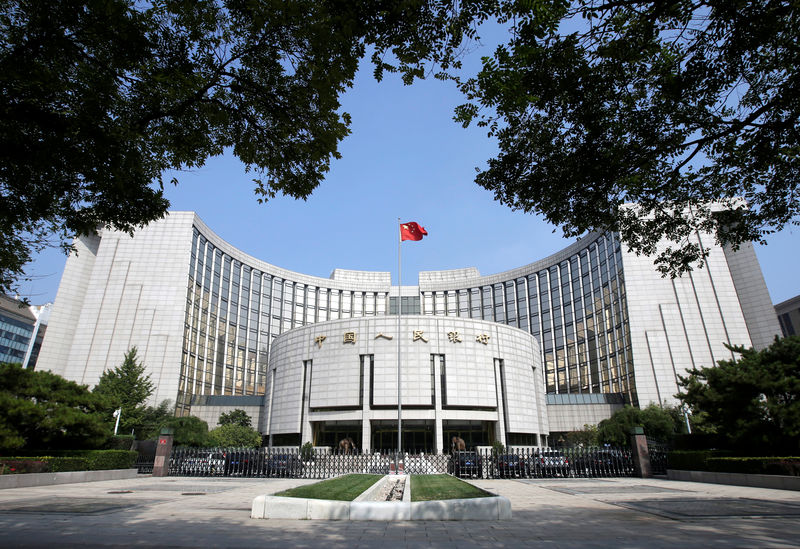SHANGHAI (Reuters) - China's central bank launched on Friday a fresh crackdown on cryptocurrency trading in the financial hub of Shanghai, after Beijing's promotion of blockchain technology reignited interest in virtual currencies.
The move came a day after financial regulators in Shenzhen launched a similar campaign, and as the People's Bank of China (PBOC) is preparing to launch its own digital currency.
PBOC's Shanghai headquarters said in a statement it would crack down on a resurgence of illegal activities around virtual currencies, and cautioned investors not to confuse such instruments with blockchain technology.
"The issuance, financing and trading of virtual currencies involve multiple risks," PBOC said, vowing to uproot such activities.
Bitcoin's price, which had dropped roughly 20% this month, extended its slide following the PBOC statement.
China launched a nationwide crackdown on cryptocurrencies in 2017, but interest in such currencies revived after Chinese President Xi Jinping said last month China should accelerate the development of blockchain technology, a digital ledger that forms the backbone of many cryptocurrencies such as bitcoin.
Xi's remarks also sparked a rush into the shares of companies engaged in, or believed to be engaged in, blockchain or digital currency-related businesses.
PBOC said last week it had not issued any digital currencies nor authorized any asset trading platforms to trade such currencies.
PBOC's Shanghai headquarters said it busted 13 platforms for initial coin offerings (ICOs) and 10 platforms for virtual currency trading during the previous crackdown in 2017.
The central bank added that it is still studying and testing its own digital currency.

PBOC is stepping up efforts to roll out its own digital currency, officially called Digital Currency Electronic Payment (DCEP), partly to fend off potential threats from Facebook's proposed digital currency Libra.